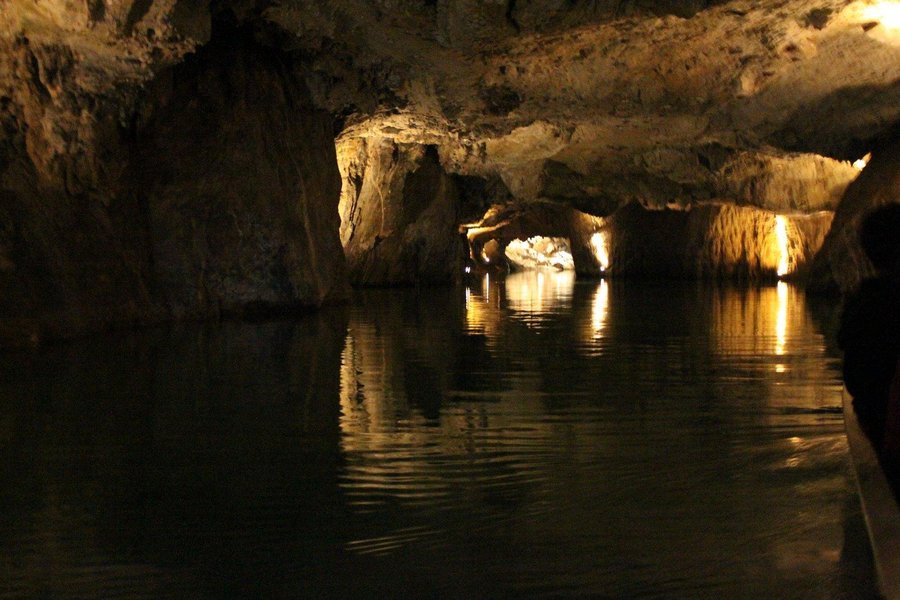Returning after hiatus.
I got sick. A summer virus, according to my doctor brother. Was laid up for a week. And then inertia took over, and I (mostly) stopped writing, although I picked up my morning journaling about a week ago. This blog, and my reflections on Italo Calvino’s beautiful, meditative Invisible Cities, fell by the wayside.
And now I return, with reflections on his chapter “Thin Cities 1,” which describes a city mirrored by an underground lake:
Isaura, city of the thousand wells, is said to rise over a deep, subterranean lake. On all sides, wherever the inhabitants dig long vertical holes in the ground, they succeed in drawing up water, as far as the city extends, and no farther. Its green border repeats the dark outline of the buried lake; an invisible landscape conditions the visible one; everything that moves in the sunlight is driven by the lapping wave enclosed beneath the rocks’ calcareous sky.
Italo Calvino Invisible Cities, Thin Cities 1
First of all, note the word “calcareous.” Let it roll around in your mouth and ears. You don’t know this word. I don’t know this word. And yet we know this word. It hurts our teeth, it is chalky and sharp and bony, full of calcium. And this is exactly what we would find it to mean, if we were to look it up. The word choice is Calvino’s, not his translator’s (William Weaver, who has done an astounding job throughout, I’m not trying to critique him), the Italian word “calcareo.”
Now we dive deeper. I have written in earlier entries that all the cities Calvino describes (or Marco Polo describes to Kublai Khan, or Kublai Khan describes to himself) are the same city, are all cities. And that these descriptions of cities are also descriptions of us, of people.
Consider, then, what it would mean for our self to rise out of a “deep, subterranean lake,” one which precisely shadows us, mirrors, us, whose boundaries extend exactly as far as our own. We might think of this lake as our unconscious, were we thinking in Freudian terms – the unknown terrain from which our conscious selves spring. Or perhaps we might think of this subterranean lake in Jungian terms as the shadow which mirrors our selves, and which must be respected, honored, and acknowledged – the parts of ourselves which we hide from ourselves, for fear of what they might reveal.

Photo credit: © Borsic at English Wikipedia
Our shadow selves might represent the darkness within us, but often contain positive aspects of ourselves (especially if we have grown in ways which have made us question or mistrust ourselves, a relatively common phenomenon in the world we live in). Keith Johnstone, author of the wonderful book Impro, argues that most of us are socialized to mistrust ourselves, and to quash our own spontaneity. Hiding in the lake beneath us is our spontaneity, our creativity, our trust in ourselves.
Calvino’s description of Isaura continues:
Consequently two forms of religion exist in Isaura.
The city’s gods, according to some people, live in the depths, in the black lake that feeds the underground streams. According to others, the gods live in the buckets that rise, suspended from a cable, as they appear over the edge of the wells, in the revolving pulleys, in the windlasses of the norias, in the pump handles, in the blades of the windmills that draw the water up from the drillings, in the trestles that support the twisting probes, in the reservoirs perched on stilts over the roofs, in the slender arches of the aqueducts, in all the columns of water, the vertical pipes, the plungers, the drains, all the way up to the weathercocks that surmount the airy scaffoldings of Isaura, a city that moves entirely upward.
Italo Calvino Invisible Cities, Thin Cities 1
Here we see two ways of relating to our shadow selves, to our unconscious. We can see it as the source of our inspiration, as the hiding place of the “gods” who “live in the depths”; or we can see worship the “gods” that move these depths upward – the pulleys and windmills, the pipes and aqueducts that allow us access to our own depths.
I think of this in terms of improvisation (which makes sense, because I think of many things in terms of improvisation). Does it make more sense to honor the processes which open us up to the improvisatory moment, which allow us to succeed as improvisors? The responsiveness to what we are offered, the desire to say “yes, and” to the gifts others give us, and to the gifts we give ourselves? Or should we care more about the results that these processes offer us, the insights and performances which they make possible?
For me, as for Calvino (if not stated explicitly, at least indicated through his syntax, through his extended and closing riff on the “city that moves entirely upward,” the right form of worship (to borrow his language) is one that cares more for the processes of improvisation, which sees them as worthy of embrace because of what they make possible. As so many improv teachers have preached and written about, if we create honest scenes, scenes that arise out of our mindful responsiveness to our scene partners, we will arrive at self-knowledge, at wonder, at humor, and at beauty. We need not aim at these targets to arrive at them.
